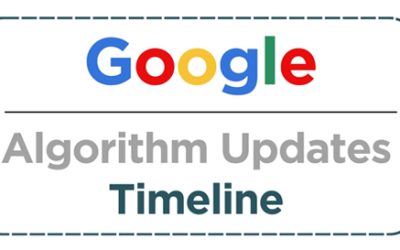Google recently announced an update to its spam detection systems that will improve coverage in many languages and spam types. Referred to as October 2023 spam update, this update is expected to reduce the visible spam in search results.
Google says that, “This spam update aims to clean up several types of spam that our community members reported in Turkish, Vietnamese, Indonesian, Hindi, Chinese, and other languages. We expect this to reduce the visible spam in search results, particularly when it comes to cloaking, hacked, auto-generated, and scraped spam. The update will take a few weeks to roll out.”
For sites that see a change after a spam update, Google recommends to review their spam policies. Learn more on our Google Search spam updates and your site help page. An experienced provider of digital marketing services in New York, MedResponsive is up to date with the latest Google updates.
Google’s automated systems continuously scan for search spam, undergoing occasional significant enhancements in their functionality. These enhancements are termed as spam updates, signifying improvements in their effectiveness and accuracy. SpamBrain is an example of Google’s AI-based spam-prevention system. From time-to-time, the system will be improved to make it better at spotting spam and to help ensure it catches new types of spam.
About Google Spam Policies
Google’s spam policies play a crucial role in safeguarding users and enhancing the overall quality of search results. For content to be eligible for inclusion in Google web search results, spanning web pages, images, videos, news content, or other material sourced from the web, it must adhere to Google Search’s overarching policies and the spam guidelines outlined on this page. These policies are applicable to all web search results, encompassing outcomes from Google’s own properties.
Google employs both automated systems and human reviews to detect content and behaviors that breach their policies. Websites violating these policies may experience a drop in rankings or might not appear in results.
Common forms of spam that Google policies cover include
- Cloaking
This refers to the practice of presenting different content to users and search engines that may result in manipulating search rankings and misleading users.
- Doorways
Doorways are websites or pages designed to optimize ranking for specific, closely related search queries. They guide users to intermediary pages that often lack utility compared to the intended final destination.
- Hacked content
Hacked content refers to any unauthorized material inserted onto a website, exploiting vulnerabilities in the site’s security. Such compromised content not only yields unfavorable search results for users but may also pose the risk of installing malicious content on their devices.
- Hidden text and links
Hidden text or links refer to placing content strategically on a webpage with the purpose of manipulating search engines.
- Keyword stuffing
Keyword stuffing is adding keywords excessively to a web page with the intention of manipulating search rankings.
- Link spam
Google relies on links as a crucial factor in assessing the relevance of web pages. Any links designed to manipulate rankings in Google Search results may be classified as link spam.
- Machine-generated traffic
Machine-generated traffic utilizes resources and disrupts Google’s ability to effectively serve users.
- Malware and malicious behaviors
Malware is software or mobile applications intentionally crafted to cause harm to a computer, mobile device, the running software, or its users. Its malicious behavior encompasses actions like unauthorized software installations and the introduction of harmful entities such as viruses without user consent.
- Misleading functionality
Some site owners follow deceptive practices for intentionally creating websites with misleading functionality and services. This approach deploys search rankings by tricking users.
- Scraped content
Certain site owners construct their websites around content extracted (“scraped”) from other, often more reputable sources. Utilizing scraped content, even if derived from high-quality sources, without offering additional useful services or content on your site, may fail to deliver added value to users. Moreover, such practices may potentially constitute copyright infringement.
- Sneaky redirects
Redirecting is directing a visitor to a URL different from their initial request. Sneaky redirecting is an unethical practice that presents users and search engines with different content that does not meet their intentions.
- Spammy automatically-generated content
Spammy auto-generated content is material created programmatically, lacking originality and substantial value. Instead of contributing meaningfully, it is crafted primarily to manipulate search rankings, offering minimal assistance to users.
- Thin affiliate pages
Thin affiliate pages are web pages featuring product affiliate links where the product descriptions and reviews are directly copied from the original merchant, devoid of any original content or added value.
- User-generated spam
User-generated spam refers to spammy content added to a site by users through a channel meant for user-generated content. Frequently, site owners may be unaware of the presence of such spammy content.
Prior to this, the latest officially confirmed Google spam updates included the October 2022 spam update and the December 2022 link spam update. At MedResponsive, our expertise goes beyond conventional strategies as we stay at the forefront of the dynamic digital realm, ensuring that your brand aligns seamlessly with the latest Google updates.
Committed to innovation, MedResponsive is your trusted partner in advanced digital marketing. We deliver tailored solutions for matchless success in the competitive market.
Simplify your marketing efforts!
Request a quote for our integrated services.





